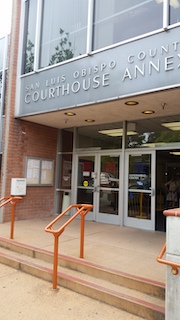As is common with any new law, the new felony murder rule in California and Senate Bill 1437’s provisions for resentencing take a while to be “ironed out” in our courts. A new law may be exhaustively debated and modified before reaching final form, but it seems to require actual challenges to its provisions before it becomes clear.
The Gist of this Article: Senate Bill (SB) 1437’s potential for resentencing is limited to those prosecuted and convicted either under the felony murder rule or the natural and probable consequences doctrine and who are then convicted of first-degree or second degree murder and: 1) was not the actual killer; 2) did not aid or abet the actual killer with the intent to kill; and 3) was not a major participant who acted with reckless indifference for human life.
Senate Bill 1437 is no exception and the recent Second Appellate District Court of Appeal decision in People v. Harold Ted Cornelius (2020 DJDAR 113), reached January 7, 2020 exemplifies not only this process but, more importantly, sets forth a three-part test for resentencing eligibility, making the new law much clearer.
In 1998, Mr. Cornelius shot his brother after an argument between the two. A San Luis Obispo Superior Court jury convicted Mr. Cornelius of second-degree murder (Penal Code §§ 187(a), 189(b)) and found true the firearm allegation (Penal Code §§ 12022.5(a)(1), 12022.53(d)) that he personally and intentionally discharged a firearm causing death. The trial court judge sentenced him to 40 years to life in state prison.
Anyone familiar with Senate Bill 1437’s amendment to the felony murder rule would probably agree that since the jury found true that Mr. Cornelius personally and intentionally discharged a firearm causing death, Senate Bill 1437 would not apply to him.
Indeed, the trial court and the Second Appellate District both concluded this rather quickly, but offered a short opinion that we summarize for how well it clarifies the new law.
 San Luis Obispo Courthouse
San Luis Obispo Courthouse
The Second Appellate Court began its analysis by distilling down the essence of the new felony murder rule under SB 1437, succinctly stating it only applies to those convicted of only felony murder or murder under a natural and probable consequences theory.
Here, Mr. Cornelius was not convicted under either theory.
After all, Penal Code § 188 was amended by SB 1437 to require that a principal act with express or implied malice and that a person can only be liable for felony murder if:
- The person was the actual killer;
- The person was an aider and abettor in the commission of murder in the first degree; or
- The person was a major participant in the underlying felony and acted with reckless indifference to human life.
The opinion then added, as if such clarity was not enough to disqualify Mr. Cornelius (the jury found he personally discharged a firearm causing death, the first way to be convicted of felony murder), that SB 1437 added Penal Code § 1170.95, which allows “a person convicted of a felony murder or murder under a natural and probable consequences theory [to] file a petition with the court that sentenced the petitioner to have the petitioner’s murder conviction vacated and to be resentenced on any remaining counts.”
To file the petition, all three of the following conditions must be met:
- A complaint, information, or indictment was filed against the petitioner that allowed the prosecution to proceed under a theory of felony murder or murder under a natural and probable consequences doctrine;
- The petitioner was convicted of first- or second-degree murder following a trial; and
- The petitioner could not be convicted of first- or second-degree murder because of changes to section 187 or 189.
Here, the Second Appellate District Court of Appeal found that Mr. Cornelius was ineligible for relief under 1437 for resentencing because he was not convicted of felony murder or murder as an aider and abettor under a natural and probable consequences theory. The jury convicted him of second-degree murder and found true that he personally and intentionally used a firearm to commit the crime. Thus, the jury found he was the actual killer and the changes to 188 and 189 were inapplicable.
We present this article because the opinion makes it very clear how 1437 applies, when many prior opinions did not offer such simplicity.
Unfortunately for Mr. Cornelius, he was not resentenced.
The citation for the Second Appellate District Court ruling discussed above is People v. Harold Ted Cornelius (2d App. Dist., 2020) 44 Cal.App.5th 54.
For more information about resentencing under the new felony murder rule (SB 1437), under Penal Code 1170.95, please click on the following articles:
 San Luis Obispo Courthouse
San Luis Obispo Courthouse